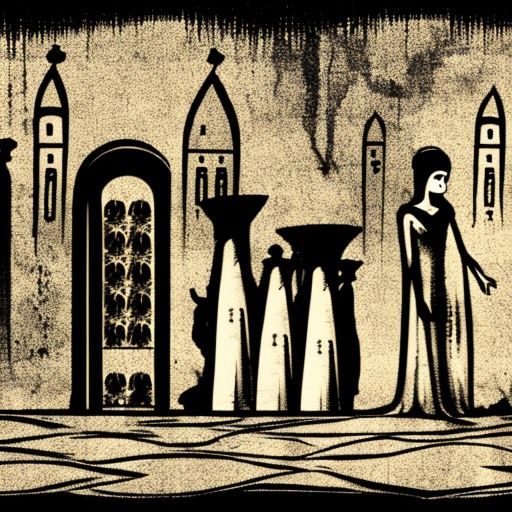Summary:
In “Persepolis 2: The Story of a Return,” Marjane Satrapi continues her captivating memoir, recounting her experiences as a young woman in Iran and her eventual departure to Austria for education. Through her personal journey, Satrapi explores themes of identity, cultural clashes, and the struggle to find one’s place in the world.
A Life in Transition
After the Islamic Revolution in Iran, Marjane Satrapi’s life takes a dramatic turn. As a teenager, she witnesses the oppressive regime’s impact on her family and friends. Satrapi’s rebellious spirit and desire for freedom clash with the strict rules imposed by the government. She finds solace in her love for music, Western culture, and her determination to challenge societal norms.
A Journey Abroad
In search of a better future and an escape from the limitations imposed on her in Iran, Satrapi decides to study in Austria. Her experiences as a foreigner in a new country bring forth a different set of challenges. She grapples with feelings of loneliness, cultural shock, and the struggle to adapt to a new way of life. Satrapi’s journey abroad becomes a quest for self-discovery as she navigates the complexities of her identity.
The Struggle for Identity
Throughout her memoir, Satrapi grapples with the concept of identity. As an Iranian living in Austria, she faces the constant pressure to conform to Western ideals while still holding onto her Iranian roots. Satrapi’s struggle to reconcile her cultural heritage with her desire for personal freedom and self-expression is a central theme in the book. She questions the notion of belonging and the sacrifices one must make to find their true identity.
Satrapi’s journey is filled with both triumphs and setbacks. She experiences love, heartbreak, and the challenges of adulthood. Through her vivid illustrations and honest storytelling, she invites readers to empathize with her struggles and triumphs, ultimately highlighting the universal nature of the human experience.
- Key Takeaways:
- Identity is a complex and ever-evolving concept that can be influenced by cultural, societal, and personal factors.
- The pursuit of personal freedom and self-expression often requires sacrifices and the willingness to challenge societal norms.
- Adapting to a new culture can be both exciting and challenging, as it involves navigating unfamiliar territory and finding a balance between embracing new experiences and staying true to one’s roots.
“You can’t understand a war until you’ve lived it. You can’t understand a dictator until you’ve seen him in action.”
In “Persepolis 2: The Story of a Return,” Marjane Satrapi continues to captivate readers with her poignant memoir, delving deeper into her personal journey of self-discovery and the complexities of identity. Through her honest and introspective storytelling, Satrapi sheds light on the universal themes of cultural clashes, the pursuit of personal freedom, and the struggle to find one’s place in the world. Her experiences serve as a reminder that the human experience is multifaceted and that understanding and empathy are crucial in navigating the complexities of our diverse world.












